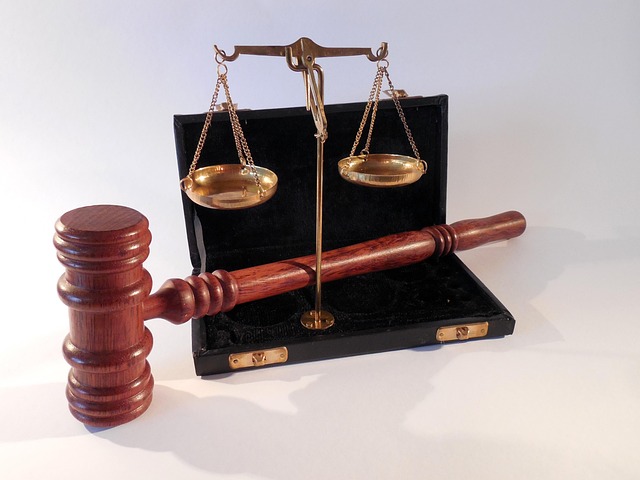Plea bargaining is a strategic decision for defendants facing legal charges, offering advantages like streamlining processes, reducing costs, and securing favorable sentencing through cooperation. However, significant drawbacks include potential unfair convictions, limited flexibility once agreements are made, and pressure to accept deals that may not fully represent the strength of their case. Defendants must carefully weigh these pros and cons, especially when facing severe consequences, to ensure the best possible outcome in plea bargaining.
“Unraveling different litigation types is pivotal for both plaintiffs and defendants alike. This article offers a comprehensive guide, focusing on understanding various legal battles and strategic decision-making. We delve into the intricacies of plea bargaining—a critical choice for defendants facing charges.
In the balance between gaining advantages and accepting consequences, this piece explores the pleading process’s profound impact. By examining the pros and cons of plea bargaining, defendants can make informed decisions, potentially mitigating outcomes in legal disputes.”
- Understanding Litigation Types: An Overview
- Plea Bargaining: A Strategic Decision for Defendants
- The Pros and Cons of Plea Bargaining in Depth
Understanding Litigation Types: An Overview

Litigation involves a legal process where parties resolve disputes in a court of law. Understanding different litigation types is crucial for both plaintiffs and defendants alike. One common method is plea bargaining, which offers several advantages and disadvantages for defendants. On one hand, it allows individuals to avoid lengthy trials, potentially reducing legal costs and time spent in court. This can be especially beneficial for corporate and individual clients alike, as it enables them to achieve extraordinary results without the hassle of a full-scale trial.
However, plea bargaining also carries risks. Defendants may accept a deal that leads to a conviction and a sentence they consider unfair. Moreover, once entered into, these agreements are typically binding, leaving little room for negotiation or change unless specific conditions are met. Across the country, legal experts emphasize the importance of thoroughly weighing these pros and cons before making any decisions in litigation cases.
Plea Bargaining: A Strategic Decision for Defendants

Plea bargaining is a strategic decision for defendants facing legal charges. This process involves negotiating a plea agreement with prosecutors, where the defendant pleads guilty to a lesser charge or accepts a sentence reduction in exchange for cooperation. Plea bargaining pros and cons for defendants are multifaceted. On one hand, it offers an opportunity to avoid the often unpredictable outcomes of a trial, potentially leading to winning challenging defense verdicts. By pleading guilty, individuals can secure more favorable sentencing terms, especially when combined with their unprecedented track record of good conduct or cooperation.
However, plea bargaining also has significant drawbacks. Defendants may feel pressured into accepting deals that do not fully reflect the merits of their case, sacrificing their right to a fair trial. Moreover, once a plea agreement is accepted, it can be difficult to revert back to an initial position, especially if new evidence emerges or legal strategies change. Nonetheless, when approached strategically, plea bargaining can be a powerful tool for defendants looking to protect their respective business interests and maintain control over the legal process.
The Pros and Cons of Plea Bargaining in Depth

Plea bargaining is a strategy where defendants negotiate with prosecutors to plead guilty to a lesser charge in exchange for a reduced sentence or, in some cases, the complete dismissal of all charges. This process offers several advantages for defendants facing complex legal issues, especially those involved in white-collar and economic crimes. By taking this route, individuals can avoid the lengthy and resource-intensive nature of a full trial, which can be both financially burdensome and emotionally taxing. Plea bargaining also allows for quicker resolution, providing relief and closure to those accused, and enabling them to move forward with their lives after fulfilling the agreed-upon terms.
However, there are potential drawbacks for defendants considering this option. Plea bargaining may not always result in achieving extraordinary results, as the prosecutor holds significant power in negotiating the deal. Additionally, pleading guilty can have long-term implications on a person’s reputation and future opportunities, particularly if the crime is seen as morally or professionally reprehensible. Defendants must carefully weigh these factors against the benefits of avoiding trial, especially when facing charges that could lead to severe consequences, such as imprisonment or significant fines.
Litigation can be a complex journey, with various strategies available to defendants. While plea bargaining may seem like a quick fix, understanding its pros and cons is crucial for making informed decisions. This process offers benefits such as reduced legal fees and faster resolutions, but it also carries risks, including potential guilt and longer-term consequences. By weighing these factors, defendants can navigate the legal landscape effectively and choose the best course of action to protect their interests.






